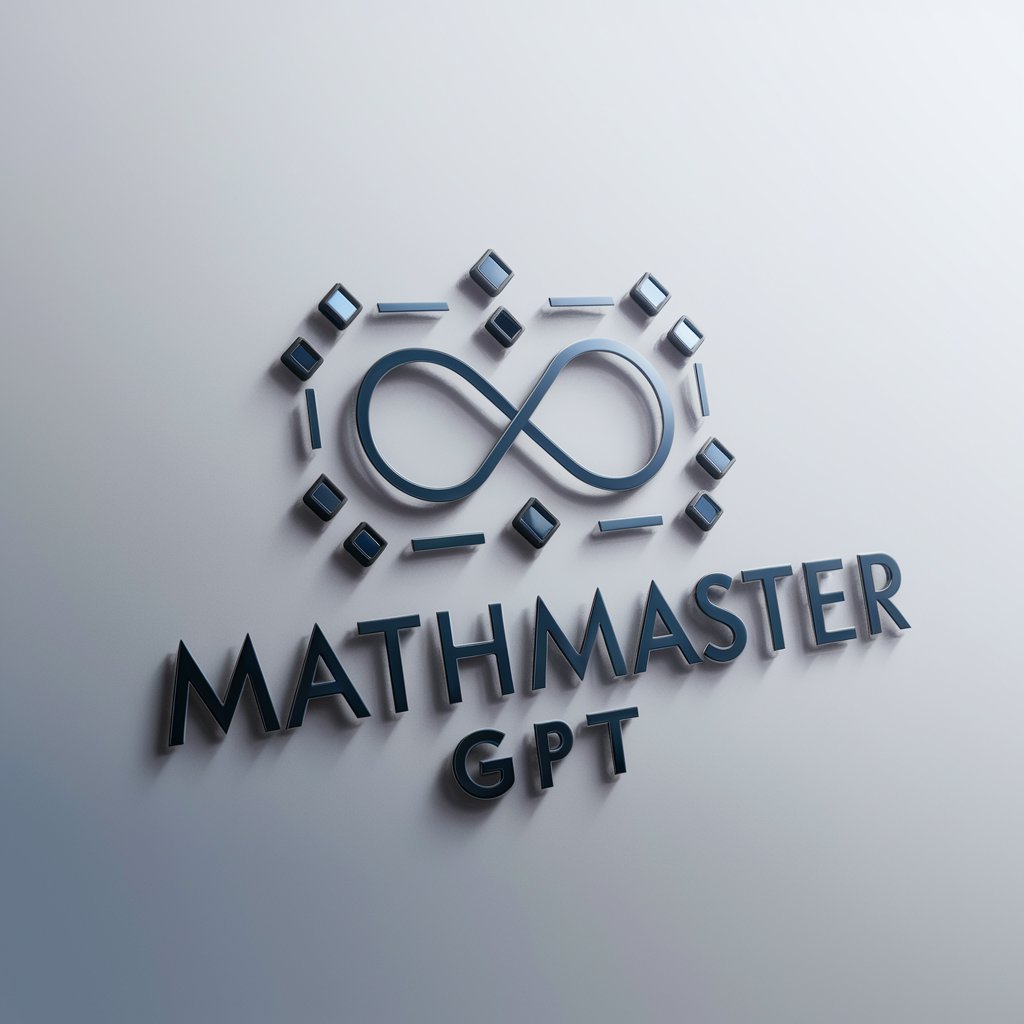5 GPTs for Equation Solver Powered by AI for Free of 2026
AI GPTs for Equation Solver are advanced artificial intelligence tools based on Generative Pre-trained Transformers, designed to tackle mathematical equations and problems. These tools leverage the power of machine learning and natural language processing to understand, interpret, and solve equations ranging from simple algebraic expressions to complex calculus problems. Their relevance lies in providing precise, efficient, and user-friendly solutions for a wide range of mathematical challenges, making them invaluable assets in educational, research, and professional settings.
Top 5 GPTs for Equation Solver are: 數學解題,ODE Calculator,Math GPT (English),AlgebraGPT,Calculator
數學解題
AI-powered solutions for your math problems

ODE Calculator
Empowering Solutions with AI Precision

Math GPT (English)
Solve Math Easily with AI

AlgebraGPT
AI-powered algebra assistance at your fingertips.

Calculator
Empowering Calculations with AI

Key Attributes of AI Equation Solvers
These GPTs tools stand out for their adaptability and precision across a spectrum of mathematical problems. They can handle tasks from solving basic equations to performing intricate mathematical analyses. Notable features include natural language understanding, which allows users to input problems in conversational language; technical support for various mathematical domains; web searching capabilities for sourcing information or solving methods; image creation for visualizing problems and solutions; and data analysis features for interpreting and solving data-driven problems.
Who Benefits from AI-Powered Equation Solvers
AI GPTs for Equation Solver cater to a diverse audience, including students learning mathematics, educators seeking to enhance teaching methods, researchers requiring advanced problem-solving capabilities, and professionals in fields needing mathematical analysis. These tools are designed to be accessible to users without programming knowledge, while offering extensive customization options for developers and technical professionals, thereby broadening their applicability and ease of use.
Try Our other AI GPTs tools for Free
Function Analysis
Discover the transformative power of AI GPTs in Function Analysis, offering tailored solutions for complex mathematical tasks with intuitive and customizable tools.
Learning Efficiency
Discover how AI GPTs revolutionize learning with personalized paths, real-time feedback, and interactive sessions for an efficient and engaging educational experience.
Dialogue Development
Discover AI GPT tools for Dialogue Development, designed to create sophisticated conversational interfaces that enhance user engagement and streamline communication tasks.
Script Review
Explore how AI GPTs for Script Review can transform your writing process, offering tailored feedback and creative insights to elevate your scripts.
Writing Education
Discover how AI GPTs for Writing Education can transform your writing skills with personalized assistance, educational content, and innovative writing tools.
Historical Clarification
Explore AI GPTs for Historical Clarification: revolutionary tools designed to transform your understanding of history with advanced analysis, insights, and fact-checking capabilities.
Expanding Horizons with AI Equation Solvers
AI GPTs for Equation Solver are not just tools for solving mathematical problems but are platforms for innovation in teaching, research, and professional practice. They offer user-friendly interfaces, making complex calculations accessible to a broader audience. Furthermore, their integration capabilities mean they can easily fit into existing workflows, providing customized solutions across various sectors.
Frequently Asked Questions
What exactly are AI GPTs for Equation Solver?
They are AI tools that use Generative Pre-trained Transformers to understand and solve mathematical equations, making them versatile for educational, research, and professional applications.
Can I use these tools without any coding skills?
Yes, these tools are designed to be user-friendly and accessible to those without any coding experience, allowing for easy input and interpretation of mathematical problems.
What types of equations can these GPTs solve?
These tools are capable of solving a wide range of equations, from basic algebraic expressions to complex calculus and differential equations.
How do AI GPTs for Equation Solver differ from standard calculators?
Unlike standard calculators, these AI tools can understand natural language inputs, solve more complex problems, and provide detailed solutions and explanations.
Are there customization options available for more advanced users?
Yes, for users with programming skills, there are options to customize the tool’s functionality, integrate with other software, and even develop new features to solve specific problems.
Can these tools integrate with educational platforms?
Yes, many of these tools are designed to integrate seamlessly with educational platforms, providing an enhanced learning experience by offering interactive problem-solving capabilities.
Is there any technical support or community for users?
Most AI GPTs tools for Equation Solver come with comprehensive technical support and an active community forum where users can share insights, ask questions, and find solutions.
What are the potential applications of these tools in professional fields?
In professional fields, these tools can be used for data analysis, financial modeling, engineering calculations, and anywhere mathematical problem-solving is required, enhancing efficiency and accuracy.